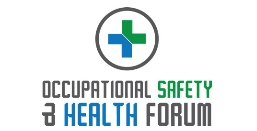By Ryan Parish, Commercial Data and Insight Manager at not-for-profit health and wellbeing provider BHSF
The ONS has recently reported an increase in issues with mental health, and the government mental health plan discussion paper also shows similar concerns. It’s an issue that the UK’s employers and employees must address.
Employees have a lack of confidence in the mental health support provided at work. Only 34% of staff source support from the workplace, driven by employers who do not proactively educate employees about services they can access or emphasise the benefits available.
The NHS is overloaded and there are waiting times of up to 18 weeks for non-urgent treatment. Employees taking advantage of EAPs (Employee Assistance Programmes) will be able to access mental health support quicker. Early access to support is regarded as the most important solution to mental health and wellbeing issues in the government report (81%).
Through early intervention and easy access to services, employees can gain the right level of care, reducing absence at work, skipping the NHS. Over 2.5 million people are out of work currently due to ill health [ONS]. Early intervention can assist in reducing this figure through faster access to care and treatment. Organisations using health and wellbeing providers who promote quality care can give their employees access to services within five to seven working days at the time of need. Early intervention can happen through other means such as a qualified GP helpline which will lead to better clinical outcomes. At BHSF, for example, over 94% of employees using the service in 2022 reported that it supported them to remain in work or to return to work quicker.
Finally, the government report listed multiple influences on mental health such as; social and family relationships, finance and debt management, as well as employment and job security.
With the right EAP plan in place, employers have the capacity to address these areas of concern, whether through financial support (cash plans, debt advice, discount portals), relational and mental support (counselling, EAP, spousal and dependent support), or support with employment (benefits package and access).
Employers looking for an EAP should consider providers that specialise in products related to all aspects of care and can tailor to the individual needs of a particular workplace to put in place comprehensive, wellbeing initiatives.
Recent research from The University of Oxford suggests that long-term, tailored wellbeing strategies that engage with individual workplace conditions are significantly more effective in improving systematic issues with workplace wellbeing than short-term, ‘one-size-fits-all’ programmes.
To help employees get the treatment they need at the right time and by the right person, businesses need to do more than install an EAP – they need to promote it, and it should also be part of a wider mental health and wellbeing strategy. This will help employees show up to work as their mentally healthiest selves and in turn, reduce sick leave across the company.





